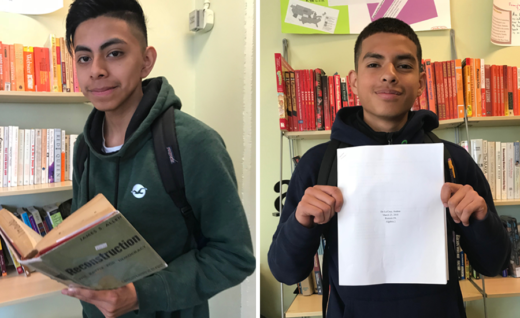Editor's note: The following story was produced for Youth Takeover week at KQED.
Post-traumatic stress disorder, or PTSD, doesn’t happen only to soldiers on battlefields far from home. PTSD also affects young people throughout the Bay Area, and the problem is most serious in low-income neighborhoods with high rates of violence and little access to mental health services.
In fact, youth in some urban neighborhoods have a higher incidence of PTSD than soldiers, according to ongoing research by the Centers for Disease Control and Prevention. Symptoms of PTSD include depression, anxiety, insomnia and an inability to differentiate between real and perceived threats.
Youth who suffer from PTSD have a harder time building relationships and achieving in school. And unlike soldiers who eventually return home from war, urban youth can’t leave their communities behind. They already are home.
"The anxiety that I had later led to depression because I was devastated with constant nightmares," says 17-year-old Eduardo Gomez, who lives in Oakland and was diagnosed with PTSD last year. "I always saw this tall black figure in the streets when I was wide awake walking to school." When he was 11, Eduardo witnessed a drive-by shooting on his way to school.

